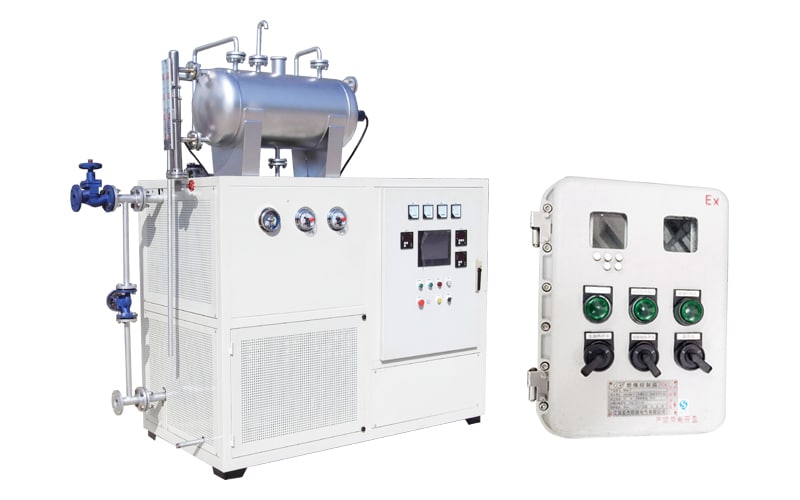What is an Organic Heat Transfer Fluid Heater?
In industrial production, Organic Heat Transfer Fluid Heater https://8ruiyan.com/en/all-organic-heat-carrier-boilers/ (electrically heated thermal oil heaters) is widely used for heating and thermal energy transfer. They utilize an organic heat transfer fluid (such as thermal oil) as the heat transfer medium, which can stably transfer heat at high temperatures. This makes them suitable for production processes demanding strict temperature control and high efficiency. To help everyone better understand the use of Organic Heat Transfer Fluid Heaters, the following will start with basic definitions and working principles.

Definition of Organic Heat Transfer Fluid Heater
An Organic Heat Transfer Fluid Heater is a device that transfers thermal energy by heating an organic liquid. These organic liquids are typically heat transfer oils or similar substances that are stable at high temperatures. They are capable of stable operation in high-temperature environments and are suitable for industrial fields requiring precise temperature control.
How it works
An Organic Heat Transfer Fluid Heater transfers heat to the heat transfer fluid by burning fuel (such as natural gas, coal) or using electricity. The heated fluid then circulates through industrial equipment, providing the required heat to the work areas. Due to their excellent thermal stability and heat transfer efficiency, Organic Heat Transfer Fluid Heaters are widely used in industries such as chemical, food, and plastics.
Common accidents
These heaters face risks like:
- Equipment failure
- Human error
- External factors
Main accident types
- Fluid leaks
- Fires
- Overheating
- Explosions
Common causes
- Aging equipment
- Poor maintenance
- Operation mistakes
- Design flaws
- Substandard fluids/fuels
Accident details
Overheating
Cause: Failed temperature control or slow response.
Result: Burst pipes, equipment damage, fires.
Leaks
Cause: Broken pipes or bad seals.
Risk: Production stops, fires (fluid is flammable).
Electrically Heated Thermal Oil Heater
Fires/Explosions
Cause:
- Hot fluid meets air (high heat/pressure)
- Gas leaks
- Electrical faults
Aging equipment
Cause: Long-term wear/corrosion.
Result: Lower efficiency, breakdowns.
Prevention methods
Regular checks
Inspect all parts often. Find problems early.
Train operators
Teach safety skills. Reduce mistakes.
Use quality materials
Install approved equipment. Use certified fluids/fuels.
Emergency steps
Leak response
- Cut power/fuel
- Isolate area
- Contain leak
Fire/explosion response
- Sound alarm
- Follow fire plan
- Evacuate
- Shut down system (explosions)
Overheating response
- Stop heating
- Check temperature controls
- Fix issues
Safety management
Build safety rules
Create clear procedures for:
- Operation
- Inspection
- Maintenance
Enforce standards
Train workers on risks. Use strict protocols.
FAQs
Overheating?
Shut down. Check controls. Repair faults.
Prevent leaks?
Check pipes/seals often. Replace old parts. Use good fluid.
Explosion causes?
Aging pipes break. Hot leaking fluid meets air. Ignites.
Handle leaks?
Cut power/fuel. Close valves. Isolate area. Start fire control.
Improve safety awareness?
Train regularly. Practice drills. Share clear manuals.
For further consultation, please contact our technical team for expert advice.
Whatsapp:86-19106101570
wechat:86-19106101570
email:nieyili@cnryan.com
